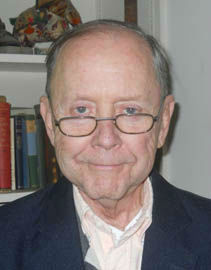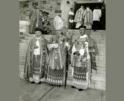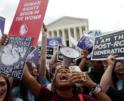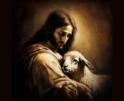
Culture
It hardly needs saying, of course, that even to suggest such a thing touches a sensitive nerve among Church officials accustomed to keeping the selection and promotion of bishops strictly to themselves. In the Church as elsewhere, this is the typical mistake of imagining secrecy bolsters authority rather than -- as is often the case -- leading in time to its diminishment and rejection.

Shaw
The Vatican document tracing the rise of ex-cardinal Theodore McCarrick through the hierarchy's ranks has been praised for its unprecedented transparency in shedding light on a dark episode in the life of the Church. But the practice of transparency shouldn't stop there.
The McCarrick report, coming after the fact, gives us an eye-opening picture of misjudgment and bungling at the upper levels of Church officialdom that enabled a man to ascend far up the ecclesiastical ladder despite continuing rumors of sexual misconduct on his part.
So far, so good. But more is needed -- specifically, a meaningful degree of proactive transparency regarding the process by which bishops continue to be appointed and promoted. This is a necessary step to prevent mistakes like the McCarrick disaster from happening again or at least make them less likely.
It hardly needs saying, of course, that even to suggest such a thing touches a sensitive nerve among Church officials accustomed to keeping the selection and promotion of bishops strictly to themselves. In the Church as elsewhere, this is the typical mistake of imagining secrecy bolsters authority rather than -- as is often the case -- leading in time to its diminishment and rejection.
And is what I suggest really all that crazy? Consider that the Holy See lately renewed its controversial agreement with the communist government of China under which the government nominates candidates for the episcopacy. If the Vatican has no problem allowing Chinese communists to have a central role in choosing bishops, what rational objection could it possibly have to letting faithful Catholics merely observe the process?
I am not proposing direct popular election of bishops, which would be a mistake in several ways. I only suggest that the clergy and people of a diocese have a role in proposing and vetting candidates as a routine part of the selection process. Besides helping to head off mistakes, doing so would encourage the emergence of supporting testimony on behalf of worthy individuals.
As matters stand, the secrecy of the current process of bishop selection is an undesirable carryover from an earlier era. Now, by contrast, there is ample support in authoritative Church documents for adopting a reasonable degree of openness in this important matter.
For example, here is what "Lumen Gentium," the Second Vatican Council's dogmatic constitution on the Church, says in speaking of the Catholic laity:
"To [the pastors of the Church] the laity should disclose their needs and desires with that liberty and confidence which befits children of God and brothers of Christ. By reason of the knowledge, competence or preeminence which they have, the laity are empowered--indeed sometimes obliged--to manifest their opinion on those things which pertain to the good of the Church. If the occasion should arise, this should be done through the institutions established by the Church for that purpose."
Or, more recently, here is the words of the former Pontifical Council for Social Communications, in a document called "Ethics in Communications," which it published in 2000:
"A two-way flow of information and views between pastors and faithful, freedom of expression sensitive to the well-being of the community and to the role of the Magisterium . . . And responsible public opinion all are important expressions of 'the fundamental right of dialogue and information within the Church.'"
Other documents could be cited, but the point should be clear. It's time to act on the principles these documents endorse by initiating a prudent and responsible opening up of the process of choosing bishops through the practice of proactive transparency.
- Russell Shaw is the author of more than twenty books. He is a consultor of the Pontifical Council for Social Communications and served as communications director for the U.S. Bishops.
Recent articles in the Culture & Events section
-
What is truth?Michael Reardon
-
The 75th anniversary of St. Ignatius of Loyola Church, Chestnut HillThomas Lester
-
The most important prayer you already knowLaura Kelly Fanucci
-
Two years after DobbsRussell Shaw
-
Scripture Reflection for July 21, 2024, Sixteenth Sunday in Ordinary TimeDeacon Greg Kandra


















